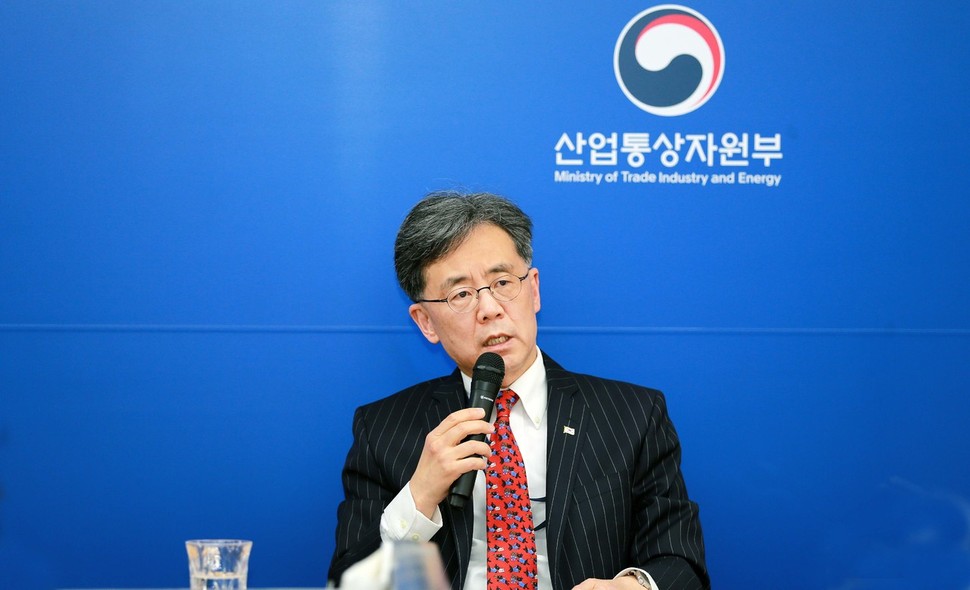 |
|
South Korean Minister of Trade Kim Hyun-chong gives a briefing of his recent visit to Washington, DC, at the Sejong Government Complex on Feb. 13. (provided by the Ministry of Trade, Industry and Energy)
|
Kim Hyun-chong addresses Korea’s potential membership in Trans-Pacific Partnership
South Korean Minister of Trade Kim Hyun-chong briefed on Feb. 13 on the possibility of South Korea being exempted from automobile (automobile parts) import tariffs according to Section 232 of the US Trade Expansion Act, claiming the response from US government officials and members of Congress he had met recently was “not bad.”
Regarding to the Comprehensive and Progressive Agreement for Trans-Pacific Partnership (CPTPP), Kim stressed that a “membership decision should not be based purely on vague anxieties and political considerations.”
Delivered in a press conference at the Sejong Government Complex that day, Kim’s remarks came while he was explaining the outcome of a Jan. 29–Feb. 6 visit to Washington, DC, where he met with prominent figures in the US administration and Congress.
“White House National Economic Council Director Larry Kudlow, US Trade Representative Robert Lighthizer, and Secretary of Commerce Wilbur Ross all praised South Korea’s efforts to advance bilateral trade relations, including the amended South Korea-US FTA,” he noted.
“But the US administration and members of Congress were very circumspect, stressing that decision-making authority for measures related to Section 232 lies with President Trump,” he added.
The US Commerce Department is scheduled to present a report to the White House by Feb. 17 containing its recommendations for tariffs on imported automobiles and automobile parts based on Section 232 of the Trade Expansion Act. Trump is required to announce final measures within 90 days of his receipt of the report.
“Based on the US’s current trade negotiations with the EU, China, and other countries, it will probably not announce the report’s content straight away, but examine progress in its talks as its decides the timing for its measures,” Kim predicted.
Stresses need for thorough cost-benefit analysis of CPTPP membership
He went on to stress the need for a thorough cost-benefit analysis on South Korea’s potential membership in the CPTPP, which went into effect on Dec. 30 after being concluded by 11 member nations, including Japan and Australia. Since South Korea already has FTAs with all CPTPP members except Japan and Mexico, its membership would amount to a de facto FTA with Japan. Countries seeking additional membership would need to adopt market openness measures according to the partnership and accept the demands of the 11 existing members.
“For example, Japan could demand a withdrawal of court rulings on compensation for forced labor conscription or the importation of seafood products from Fukushima,” Kim suggested.
“We would need to accept 100% of the CPTPP norms, which would means allowing apple and pear imports that have been banned under sanitary and phytosanitary measures (SPS) and disallowing support for tax-free oil,” he noted.
“The decision on taking part in CPTPP would be less difficult if we had an advantage over Japan in terms of industry competitiveness.”
By Cho Kye-wan, staff reporter
Please direct comments or questions to [english@hani.co.kr]







